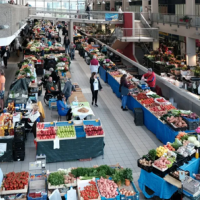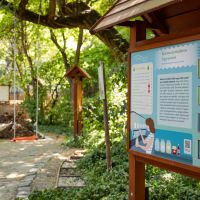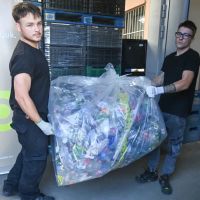New case study: The story of Ljubljana, first Zero Waste capital in Europe!
Ez is érdekelhet

This case study proves that high recycling targets are not only feasible, they also save money and create jobs.
Zero Waste Europe publishes today a new case study showing the impressive transition of Ljubljana towards zero waste. The Slovenian capital is the first capital in Europe to declare the Zero Waste goal and today separately collects 61% of its municipal waste. It should be recalled that Slovenia joined the European Union in 2004 and before then it didn't have proper waste separate collection in place.
Executive Director of ZWE, Joan-Marc Simon said "The case study of Ljubljana proves that it is possible for newest member states to reach most ambitius recycling targets in only a decade whilst keeping record low waste generation and costs. There is no reason for other Eu capitals or for the EU policy-makers to aim at less than what this experience proves as being possible."
Snaga is the public company managing waste in Ljubljana and in 9 suburban municipalities serving around 360.000 residents. In average they have reached levels of source separation of 61% whilst generating only 121kg of non-recyclable waste per inhabitant and year. In contrast, the EU average level of source separation is 42% and a 285kg per inhabitant and year of residual waste.
In less than ten years, Ljubljana has become a frontrunner and is now 20% above the EU's recycling rate and 10 points above EU's 2020 targets. Furthermore, Ljubljana is committed to halving the amount of residuals and increasing separate collection to 78% by 2025.
Ljubljana has avoided incineration, while proving that going towards zero waste is completely feasible in a very short time. At the same time, it has made once again evident that effective door-to-door separate collection don't only fall in the realm of small villages, but also work in large cities. Ljubljana has, therefore, managed to become the best performing EU capital, keeping one of the lowest waste management cost in Europe.
Case studies like this one show that, in contrast with the outdated idea of burning or burying our waste, preventing, reusing and recycling it create jobs and resilience, save money, and protect the environment and public health.
You can download the case study here.
Source: Zero Waste Europe







